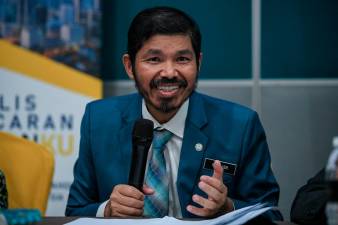PUTRAJAYA: Malaysia’s median monthly household income rose to RM7,017 in 2024, reflecting an annual growth of 5.1%, according to the latest Household Income and Expenditure Survey (HIES).
The average income stood at RM9,155, up 3.8% compared with 2022.
The Department of Statistics Malaysia (DOSM) reported that average disposable income also climbed to RM7,584, while the median reached RM5,999, indicating households had more capacity to cover basic spending.
Income growth, however, varied widely across states.
Kuala Lumpur (RM10,802), Putrajaya (RM10,769) and Selangor (RM10,726) recorded median household incomes well above the national level.
Johor (RM7,712), Penang (RM7,386) and Labuan (RM7,383) also exceeded the national median.
Penang posted the fastest growth between 2022 and 2024 at 6.4%, while Perak registered the slowest at 2.1%.
Acting Economy Minister Senator Datuk Seri Amir Hamzah Azizan said the disparities highlight the need to ensure that economic gains are more evenly shared.
“The data confirms that our policies are making a difference, but we must also address states that are lagging behind.
“Closing these gaps is crucial for balanced development,” he said when launching the HIES 2024 report today.
The survey also showed continued progress in poverty reduction.
Hardcore poverty dropped to 0.09%, or fewer than 8,000 households nationwide, while absolute poverty fell to 5.1%, affecting 416,000 households.
Both figures were down from 6.2% in 2022.
Amir said the improvement reflects the success of government initiatives but warned that eliminating poverty altogether requires long-term strategies.
“Our goal is not only to reduce numbers on paper but to ensure families are resilient to challenges ahead.
“Poverty eradication must be about creating opportunities for mobility, not just providing temporary aid,” he said.
DOSM chief statistician Datuk Seri Mohd Uzir Mahidin (pic) said the survey findings provide policymakers with critical insights to refine social and economic strategies.
“The HIES offers a comprehensive view of household well-being, from incomes to spending patterns, so interventions can be guided by evidence,” he said.
The government has pledged to sustain momentum through the 13th Malaysia Plan, with Amir saying reforms will focus on creating opportunities to lift more households into the middle class.
